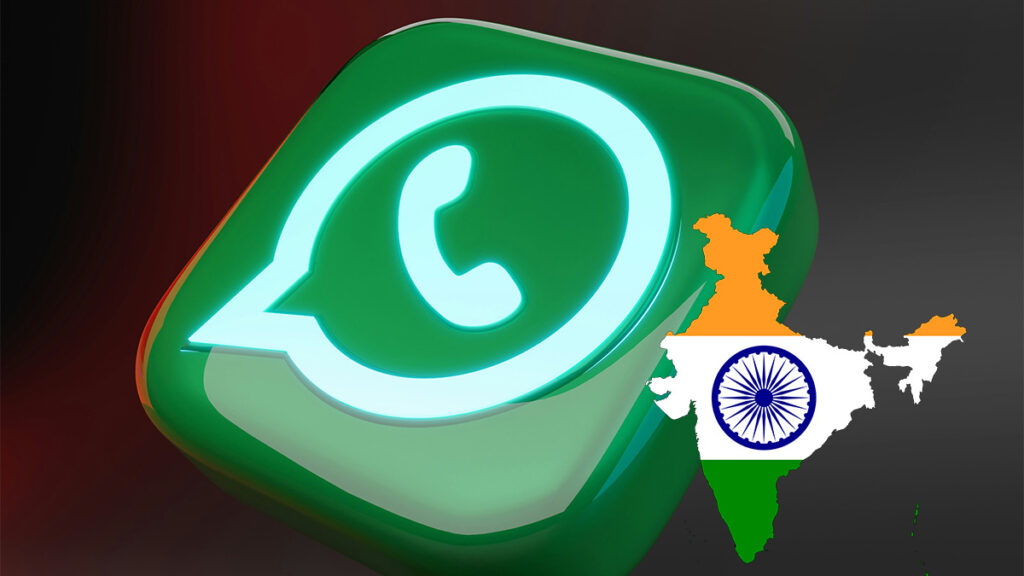WhatsApp threatened to leave India if it’s forced to follow the new IT Rules set by the government. The big issue is about message encryption, a feature WhatsApp introduced in 2016. This encryption is important for user privacy and data protection.
Recently, WhatsApp and its parent company, Meta, said they’d shut down in India if they had to give up encryption or share user data with the government. This argument arose in the Delhi High Court when WhatsApp and Meta challenged the new rules. They don’t like the rule that says they must reveal where messages come from. WhatsApp’s lawyer, Tejas Karia conveyed that if WhatsApp is told to break encryption, it will leave India.
Let’s take a closer look at why WhatsApp threatens to leave India.
Are Your WhatsApp Messages Safe?
Your messages on WhatsApp are super secure because they’re end-to-end encrypted. Only you and the person you’re chatting with can read them. WhatsApp and its parent company, Meta, can’t access your messages, according to WhatsApp. They use a special system called the Signal Protocol, which was created in 2013. It’s like a secret code that keeps your messages safe from anyone who tries to snoop on them. So, when you’re chatting on WhatsApp, you can trust that your conversations are private and protected.
The company says breaking this special encryption would violate your right to privacy. Now, they’re asking the courts to step in and help. They’re challenging a specific rule, saying it’s against the Constitution.
Government’s Perspective
The government says with so much false information going around during the Covid-19 pandemic, they need to track where it’s coming from to stop fake news and hate speech. They believe having access to this information will help them quickly deal with harmful content on social media.
India’s IT Rules 2021 and its New Social Media Guidelines
In 2021, the Indian government made new rules for social media platforms. These platforms had to appoint certain officers to ensure they followed the rules and publish monthly reports showing they did so. However, one rule made people worried because it required them to identify who had sent the first message, raising concerns about privacy. These rules have been challenged in court, and some changes have been made because of that.
Controversy Over WhatsApp’s Policy Change
There’s been some fuss because WhatsApp updated its policy to share data from WhatsApp for Business with other Meta companies, like Facebook. But WhatsApp says it can’t actually see the messages you send to businesses. WhatsApp says this change would mean storing millions of messages for a long time, which isn’t practical.
The Delhi High Court, which is handling the case, thinks it’s a tricky situation. They say privacy rights aren’t always absolute and that there needs to be a balance.
Data Privacy Law in India
The big issue here might be that India doesn’t have a strong law to protect people’s data like the European Union does. Even though there have been talks about it for a long time, India still hasn’t come up with a solid data privacy law. The Digital Personal Data Protection Act was passed by Parliament last year, but it’s waiting for more rules to be set after elections. Once this law is in place, it could ensure that user data is kept safe and make rules for how tech companies should behave.
As WhatsApp and the Indian government argue, the result of this legal fight could change how things work online in the biggest democracy in the world.
Apple vs. FBI: The Encryption Battle
In 2016, there was a big fight between Apple and the FBI. The FBI wanted Apple to help unlock an iPhone used by one of the San Bernardino shooters, but Apple said no. They were worried that creating a way in could put all iPhone users’ security and privacy at risk. Eventually, the FBI got into the phone with the help of another company, starting a big debate about how to balance national security and personal privacy.
Since then, there have been more fights between law enforcement and tech companies about accessing encrypted devices and messages. The FBI and others say they need access to this data to fight crime and terrorism, but tech companies say strong encryption is important for keeping user information safe. This problem is still not fixed, and debates about it are still going on, shaping how digital privacy and law enforcement work.
Also Read:
Swiggy Gets Shareholders’ Approval for $1.2 Billion IPO
BharatPe One: BharatPe Launches All-In-One Payment Device with Integrated POS
Google Gemini, OpenAI’s ChatGPT Could Lead to Civilization’s End, Warns Elon Musk
